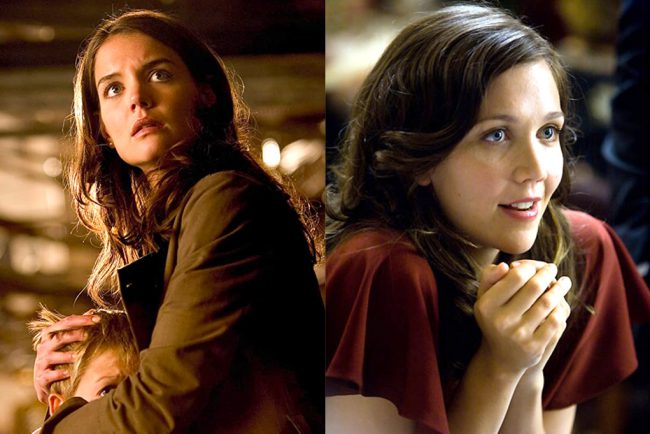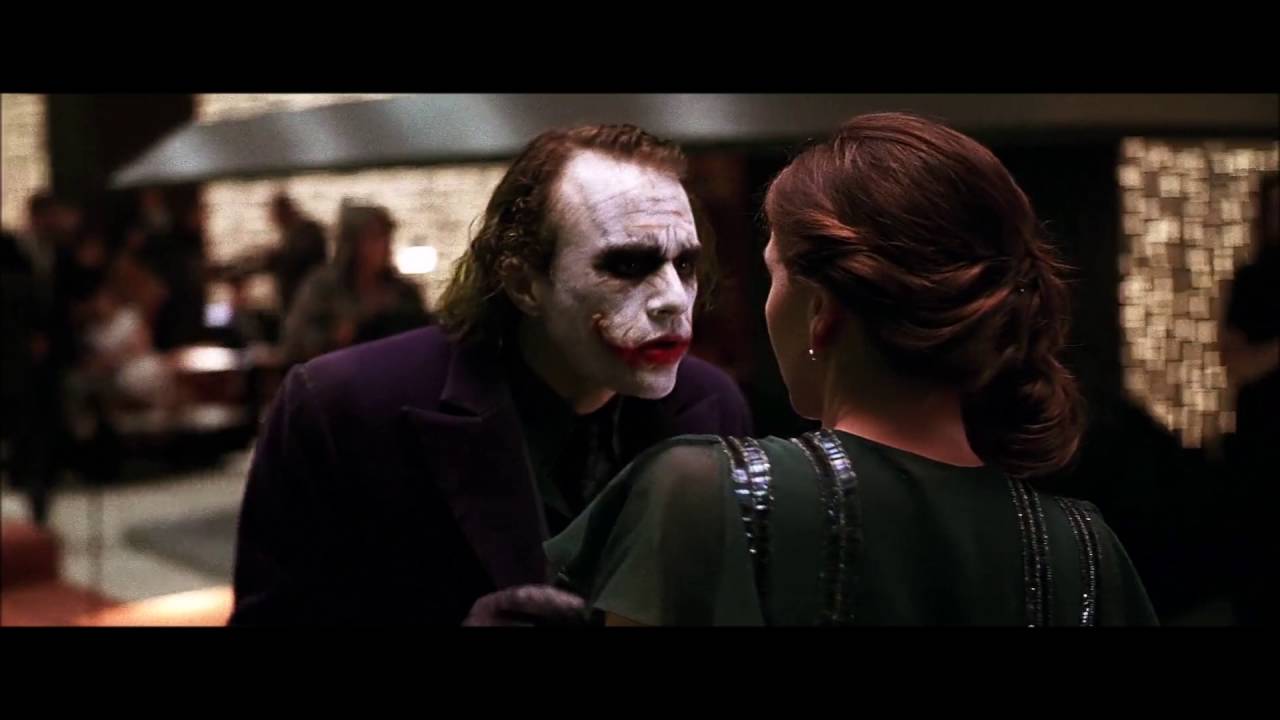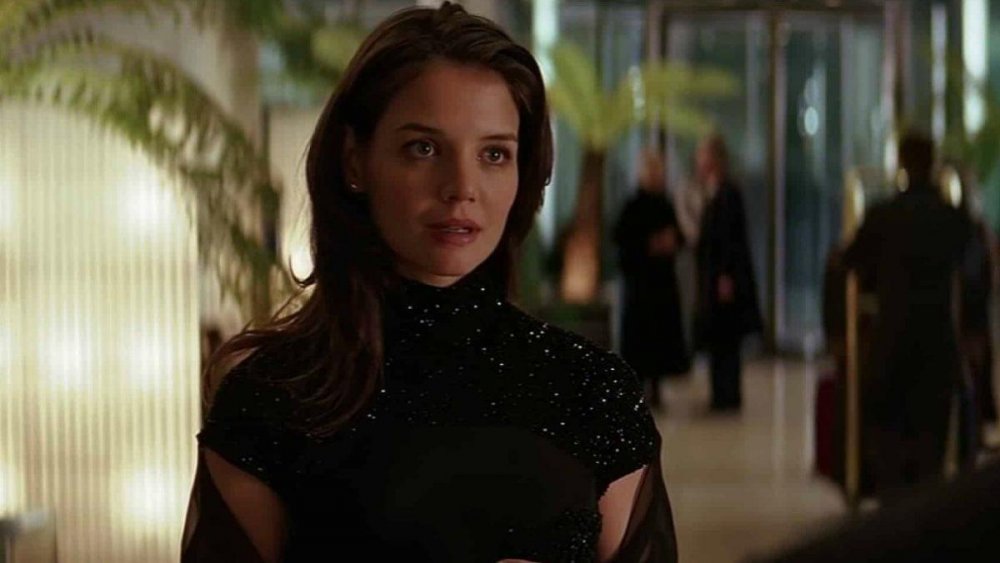Christopher Nolan’s Batman trilogy, also known as The Dark Knight trilogy, has left an indelible mark on the Batman franchise, with many fans considering its Batman as the definitive portrayal of the caped crusader. Among the notable characters in the series, Rachel Dawes holds significant importance. However, actress Katie Holmes, who portrayed Rachel in Batman Begins, made the decision not to return for The Dark Knight.
Rachel Dawes: An Integral Character in The Dark Knight Trilogy
Throughout Batman’s long history, the lore surrounding his character, Gotham City, and the people in his life has evolved and become increasingly complex across different iterations. Characters come and go, undergo transformations, and sometimes revert to their old ways depending on the storyline. However, Rachel Dawes stood out as a unique character, introduced exclusively in Batman Begins.
Despite occasionally being portrayed as a damsel in distress (a common trope for superhero love interests), Rachel’s presence plays a vital role in the growth of Bruce Wayne, also known as Batman (Christian Bale). As close childhood friends, Bruce and Rachel reunite after years of separation, only to decide against pursuing a romantic relationship due to Batman’s responsibilities to Gotham. This trope of superheroes being denied their love interests due to their commitment to saving lives is a recurring theme, and Rachel embodies this dilemma by refusing to be with Bruce until Batman is no longer needed.

Rachel’s significance further intensifies in The Dark Knight, where the Joker (Heath Ledger) cruelly manipulates Batman, resulting in Rachel’s tragic death. Her life and demise have a profound impact on both Bruce Wayne and Harvey Dent (Aaron Eckhart), the two men who loved her. This isn’t merely a case of a damsel in distress dying for the sake of male character development; Rachel Dawes’ loss reverberates throughout Gotham City as she had a profound influence on the city itself. Without her, the emotional impact of Batman’s lowest point in The Dark Knight Rises would not have been as poignant.
Given the pivotal role Rachel Dawes plays, it is crucial to maintain viewers’ engagement in the story. However, casting changes can sometimes remind viewers that they are watching a movie, disrupting their immersion in the narrative.
Katie Holmes’ Departure from The Dark Knight Trilogy
In contrast to many other actor/actress switch-ups in Hollywood, Katie Holmes’ departure from the Batman trilogy was amicable and devoid of any drama. Holmes held no animosity towards Rachel Dawes or Christopher Nolan’s Batman trilogy; instead, she desired to explore other acting opportunities at the time. In fact, rather than reprising her role as Rachel Dawes in The Dark Knight, Holmes appeared as Jackie Truman in the television series Mad Men.
There were no conflicts or strained relationships among the cast and crew. Holmes later expressed her willingness to work with Christopher Nolan again, emphasizing that she had no regrets about her decision at the time. Although replacing an actor mid-trilogy can be distracting, in this case, there was little choice when an actor becomes unavailable.
Since Katie Holmes was unable to continue the role, the search for a replacement began. Eventually, the role was handed to Maggie Gyllenhaal, who received accolades for her powerful portrayal of Rachel Dawes. Both actresses brought their own strengths to the character, ensuring that Rachel Dawes remained a formidable presence throughout the Nolan Batman trilogy.

The Transition from Katie Holmes to Maggie Gyllenhaal
While there may be differing preferences among viewers, there is no widespread consensus on which actress delivered a better performance in the role. Although the casting change sparked some discussion and adjustment among fans (as is common with such transitions), it is far from being a heavily debated topic in Batman lore.
Katie Holmes’ departure from the Batman trilogy set the stage for a remarkably congenial recasting process. Both actresses showed tremendous respect for each other, with Maggie Gyllenhaal even seeking and receiving Holmes’ blessing to portray Rachel in The Dark Knight. Thanks to this smooth transition, Gyllenhaal seamlessly took on the role and received high praise for her portrayal.
In contrast, the transition from Katie Holmes to Maggie Gyllenhaal in the Batman trilogy was marked by remarkable cordiality. Holmes bid a gracious farewell, and Gyllenhaal entered the scene with respect for her predecessor. Such maturity and grace are not always evident when an actor leaves a film franchise. While continuity changes can be disconcerting, this particular instance demonstrates how to handle a casting change with respect and good intentions, ultimately ensuring a smooth transition for the character and the audience.
While no one prefers continuity changes in casting, the case of Katie Holmes, Maggie Gyllenhaal, and Rachel Dawes serves as an example of how to navigate such transitions with grace, ensuring a seamless evolution of a beloved character.









